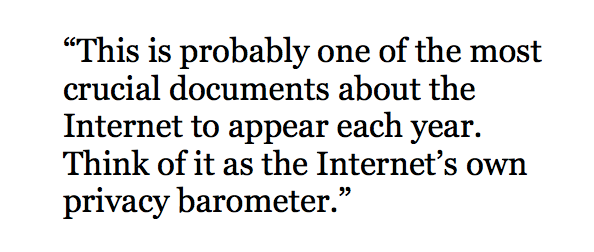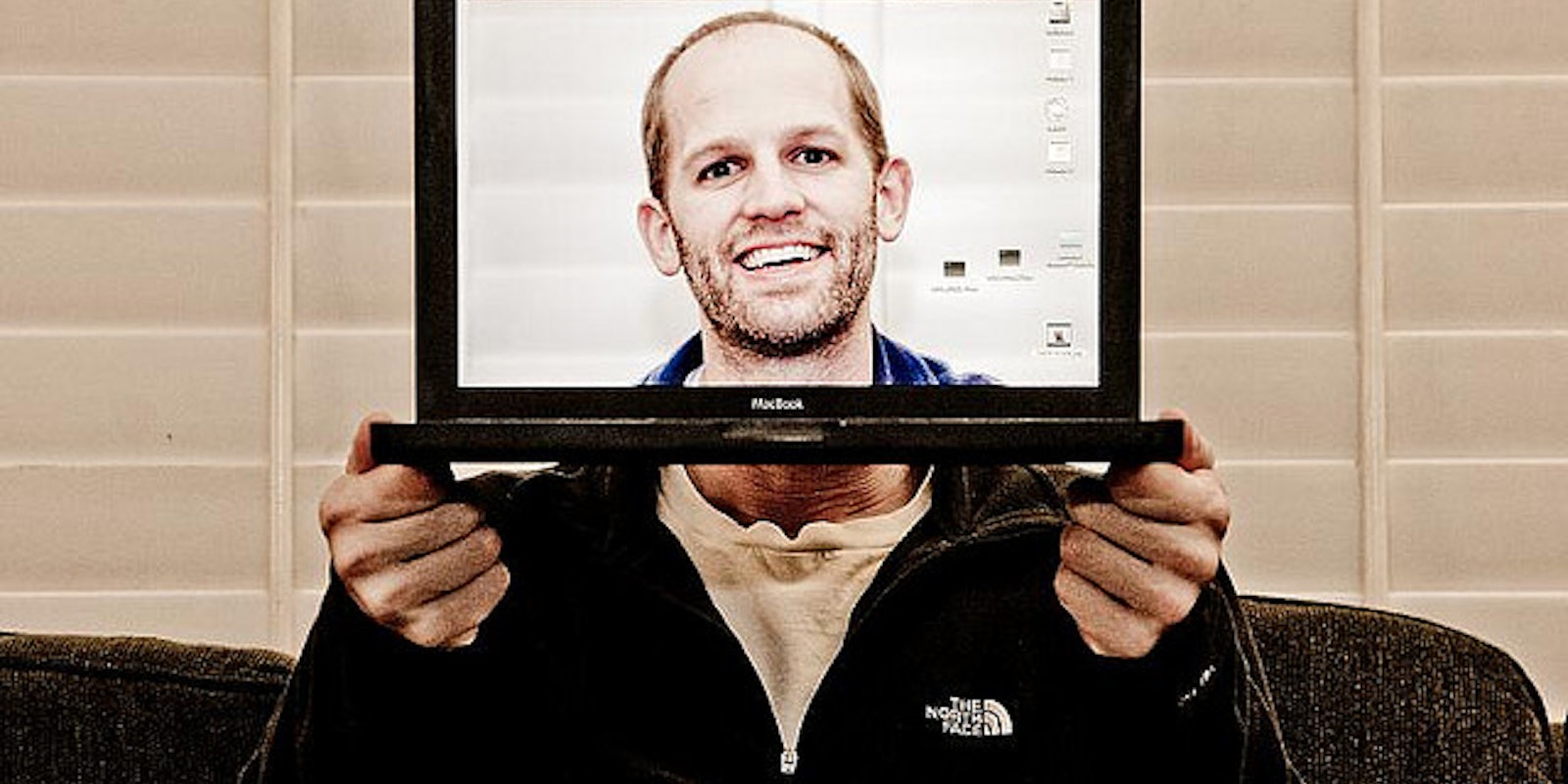By CHRIS R. ALBON
On Monday, Twitter released its second annual “Transparency Report.” The report is a functional, bare bones list of key stats: user details, information removal, and copyright takedown requests by governments and other organizations. It will almost certainly go unnoticed by the vast majority of the service’s half billion active users. And that’s a real shame. Because this is probably one of the most crucial documents about the Internet to appear each year. Think of it as the Internet’s own privacy barometer.
One thing the Transparency Report makes abundantly clear is the troubling extent to which governments are reaching into the lives of Twitter users. Interestingly, the US government is responsible for the large majority of user information requests. And they get what they want when they want it, pretty much: Twitter admits to complying with US government requests for Twitter user information a whopping 70 percent of the time. (One wonders what the conditions are behind the 30 percent refusals—what is it that makes Twitter tell the government to back off?) The data revealed in the report deserves substantial analysis, something I look forward to seeing more of in the coming days.
But what’s most important about the report is the fundamental fact that it exists at all.
 In no uncertain terms, governments are building more and more tools to monitor citizens: both foreign and national. Despite widespread budget cuts across the US government, the Defense Department yesterday announced a 500% increase in the size of its “Cyber Command” with the mission to “defend the Department of Defense information networks and when directed, conducts full-spectrum military cyberspace operations” headed by General Keith Alexander.
In no uncertain terms, governments are building more and more tools to monitor citizens: both foreign and national. Despite widespread budget cuts across the US government, the Defense Department yesterday announced a 500% increase in the size of its “Cyber Command” with the mission to “defend the Department of Defense information networks and when directed, conducts full-spectrum military cyberspace operations” headed by General Keith Alexander.
The world’s government intelligence and law enforcement agencies are increasingly demanding that technology services hand over user data. The NSA, also headed by the same General Keith Alexander, is responsible for building the infamous 641A at AT&T’s Folsom Street facility in San Francisco—likely used for deep packet inspection on Internet traffic. In a landmark case in 2004, Yahoo complied with a request from the Chinese government to reveal the identities of certain political dissidents. Recently, a French court is demanded Twitter reveal the identities of a number of users who made racist and anti-semitic comments. In another example, in 2011 a California court forced Twitter, which is based in San Francisco, to reveal the identity of a user accused of committing libel against a local government council in England.
At the heart of this problem is norms. Norms are a powerful force in society. For example, even though rarely legally required to do so, retail stores almost universally accept returns. They do this not because of a law, but because of the consumer expectation that returns are allowed. It’s good business. Retailers know that if they bucked this norm, they would face a fierce and costly backlash from consumers. This is their incentive to allow the practice.
On the often weakly governed (and rightly so) Internet, norms are even more important. The norms established during the Internet’s first era as ARPANET—shallow packet inspection, protection of anonymity, and net neutrality—we take for granted today. But governments are trying to change that now. Hard. They’re pushing to establish a new set of norms where users have no expectation of privacy, and governments are firmly in control.
The Internet is in a critical period as governments, users, and advocates battle over which set of norms and which expectations govern the digital domain. And once they’re established, they’ll be very hard to change. We should pay attention to the game on the table—we’ll all be playing with this hand of cards for years to come.
 Personally, I would love for Twitter to take a harder stand against government information requests. But I know that’s a naive hope. I’d be their greatest champion while it lasted, but it wouldn’t last long. Businesses make bad martyrs. So if non-cooperation is realistically off-the-table, the next best option is transparency. And the best way we can foster transparency is to make voluntary reports like Twitter’s, of government requests for user information, an expectation—a norm.
Personally, I would love for Twitter to take a harder stand against government information requests. But I know that’s a naive hope. I’d be their greatest champion while it lasted, but it wouldn’t last long. Businesses make bad martyrs. So if non-cooperation is realistically off-the-table, the next best option is transparency. And the best way we can foster transparency is to make voluntary reports like Twitter’s, of government requests for user information, an expectation—a norm.
This is why Twitter’s Transparency Report is so important. It is a critical step towards establishing a norm of transparency towards government interference in user privacy—not only by Twitter, but all technology companies with user data. We need to make it normal to see this information. We need to establish that privacy and anonymity are an expectation on our Internet, and that we’ll object—strenuously, with action—to governments requesting information and the technology companies providing them with no accountability.
Transparency reports like Twitter’s are a big step in that direction. For now, we know we probably can’t stop government requests for user information; at least we can demand that the services we use disclose the nature and extent of those requests. If for no other reason than to make sure they know—we are watching.
Chris R. Albon is a political scientist and writer on the global politics of science and technology. Presently, Chris leads the Governance Project at FrontlineSMS. Prior to FrontlineSMS, Chris earned a Ph.D. in Political Science from the University of California, Davis.
Photograph by kellinahandbasket
